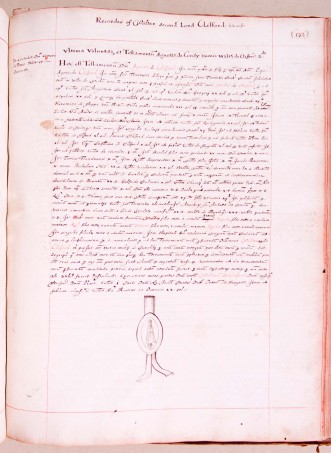Last night I attended a fascinating lecture on ‘The Men behind the Pen’ by Imogen Corrigan and I was struck once again by just how vital the preservation of books, other artefacts, standing buildings and archaeological records are in our understanding of ourselves today. She was discussing the role of the scribe in what we might describe as the Anglo-Saxon period, primarily drawing on examples from across western Christendom and she noted the relatively frequency with which the scribe identified himself in the written manuscript. Although many of these men (we also know of a few women) were monks, others were professional scribes and their motives for writing or the complaints they recorded about cold or other difficult conditions chimed, as one would expect, with a modern audience. However there may be one critical difference in terms of comparing how the written word was viewed in about the year 1000 and today, for then it had for all, among other connotations, the idea of Christ, the Word from John’s gospel, a sense of mystery and the divine that could save, yet also damn if wrongly produced or used by the reader. This is certainly not to suggest that modern men and women are superior beings compared to our medieval ancestors, rather that, as in England for example, the move from the Victorian period towards a universal education system that privileged reading and writing has meant that we are inclined to forget or underestimate the power of the written word but also paradoxically that it is merely one form of communication – just one of a number of tools that we can use (and abuse). Indeed, perhaps the events in Paris over the last week have again awakened that debate over the relative balance of power between ‘the pen and the sword’ that has shifted many times over the centuries.
Copy of Agnes de Clifford’s early 13th-century will that includes numerous bequests which relate to Canterbury. The document is in Lady Anne Clifford’s ‘The Great Books of Record’ that she had made under her supervision in the mid-17th century.
copyright: Cumbria Archive Service, Kendal
Of course, one reason for the written word’s value is its potential permanence, which is, I guess, where I started. Today if we are thinking about old books, manuscripts, tablets or other places where we can find such words we generally think about archives, libraries and museums, although some are still in situ on buildings, for example. Nevertheless it is these three types of repository that I want to mention, and most particularly the first. Having spent yesterday in Canterbury Cathedral archives working on someone’s papers – in many cases copies of earlier written words, I was delighted to see among the other readers were postgraduates from Canterbury’s two universities. All were exploring topics related to Canterbury’s medieval past and it was great to see one of Professor Louise Wilkinson’s students researching the involvement of women in the life of the 13th-century city. The excitement of handling documents created hundreds of years ago to discover what they can tell us about our predecessors is known by academics, local and family historians, to mention but a few groups, yet it is vital that this understanding passes to the next generation of potential researchers. This means protecting the nation’s repositories, as well as providing access and the knowledge of what is available and how that potential may be explored. Much is being done across Kent through the enthusiastic work of staff and volunteers belonging to the various archive, library and museum services, but universities also have a role to play. One way this is being undertaken at Canterbury Christ Church is through the different activities at this Research Centre and I hope as many readers as possible of this will participate in the workshops, talks, exhibitions and conferences that are being organised for 2015 and beyond.
 Centre for Kent History and Heritage
Centre for Kent History and Heritage Sheila Sweetinburgh
Sheila Sweetinburgh 866
866


